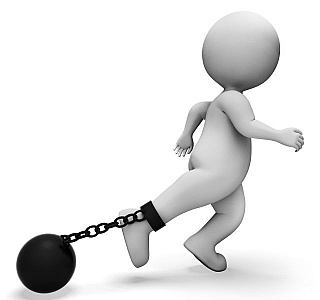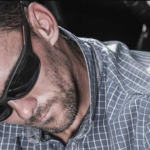A person’s prior convictions can come back to haunt them.
Under certain circumstances, a prior criminal conviction can be used as evidence against someone during the trial on a new charge.

Why Prosecutors Want to Introduce Evidence of Prior Convictions
When a defendant is on trial, prosecutors often seek to introduce evidence of prior convictions to paint a picture that aligns with their narrative of the defendant’s character and propensity for criminal behavior. The underlying notion is that past behavior can be indicative of present actions. This is where the phrase “prior conviction can be used” becomes relevant. A prosecutor might argue that a prior conviction, especially for a similar crime, demonstrates a pattern of illegal behavior, thereby attempting to sway the jury’s perception of the defendant’s current charges.
However, using prior convictions is not without limitations and is subject to legal scrutiny. Defense attorneys vigilantly challenge such attempts, understanding that this strategy can unfairly prejudice a jury against the defendant. They argue that past convictions, particularly those not directly relevant to the current charges, should not unduly influence the present case. The legal system’s integrity relies on the notion that each case should be judged independently on its own merits, free from the potentially misleading influence of past transgressions. The aggressive defense attorneys with LEWIS & DICKSTEIN, P.L.L.C. ensure that the focus remains on the facts and evidence pertinent to the specific charges at hand, safeguarding the fundamental principle of ‘innocent until proven guilty’ and ensuring a fair trial.
Even Misdemeanor Convictions Might Be Admissible
A prior conviction can be used against a defendant at trial or in a hearing in certain circumstances. The United States Supreme Court ruled that the prosecution could discredit a defendant with a prior 15-year-old misdemeanor conviction for filing a false name to a police officer.
The Michigan Rules of Evidence apply a balancing test to determine the use of prior misdemeanor and felony convictions. The court decided, “[w]here a prior conviction is more than 10 years old, the conviction should be rarely admitted and only if the court finds that the probative value substantially outweighs the prejudicial effect. In making this assessment, the court must consider the following:
- (1) the impeachment value;
- (2) the point in time of the conviction and the witness’ subsequent history;
- (3) the similarity between the crime and the current charge;
- (4) the importance of the witness’s testimony; and
- (5) the centrality of the credibility issue.
The Supreme Court determined that this prior offense should not have been used in this particular case because it was 15 years old; however, the error was considered “harmless” because there was substantial other evidence of guilt. In other words, even though the prosecutor used a prior conviction at trial, the error was harmless because the appellate court felt the defendant was guilty based on other evidence unrelated to the prior conviction.
Prosecutors Use Prior Convictions to Bias the Jury
Prosecutors often introduce a defendant’s prior convictions as a strategy to subtly influence the jury’s perception, leaning on the human tendency to draw connections between past and present behavior. This approach suggests that a history of criminal activity diminishes the likelihood of innocence in the current charge, effectively tilting the scales of justice. It’s a maneuver that capitalizes on a juror’s natural biases and preconceptions, potentially overshadowing the objective assessment of the evidence at hand.
Excluding Evidence of the Defendant’s Prior Convictions
Criminal defense attorneys play a critical role in ensuring that their client’s prior convictions are not unduly used against them in court. The primary strategy in this fight is to file a motion to suppress evidence of past convictions, arguing that their introduction would be more prejudicial than probative. The legal team with LEWIS & DICKSTEIN, P.L.L.C. meticulously scrutinizes this historical information’s relevance and potential impact. They argue that such evidence could unfairly sway the jury, causing them to judge the defendant based on past actions rather than the facts of the current case. Michigan’s most effective defense attorneys often cite the latest legal precedents and rules that have interpreted the Michigan Rules of Evidence to state that for evidence to be admissible, its probative value must outweigh its potential for unfair prejudice.
Furthermore, defense attorneys might argue that the prior convictions are irrelevant to the current charges, especially if the nature of the past offenses significantly differs from the present accusation. They emphasize the principle that the defendant should be tried solely on the evidence related to the crime they are currently charged with, not on their past mistakes or behaviors. In cases where a prior conviction is for a similar crime, defense lawyers might contend that the passage of time has rendered this information less relevant or that the defendant’s circumstances have significantly changed.
In essence, criminal defense attorneys ardently advocate for a fair trial in which the verdict is based solely on the evidence pertinent to the current case. Their efforts to exclude evidence of prior convictions are a testament to their commitment to justice and protecting their client’s rights. They ensure that each person is judged on the merits of the case before them, not their past.

Aggressive Criminal Defense Attorney
LEWIS & DICKSTEIN, P.L.L.C. is Michigan’s Premier Criminal Defense Law Firm. We can help clients with evidence concerns, such as whether a prior conviction should properly be introduced as evidence. Our lawyers have the expertise and credibility to persuade judges that evidence should not legally be admitted into court.
If you, or someone you know, is charged with a crime or facing possible charges, you must have the best lawyers available to represent and protect you. The firm’s attorneys are well-known and well-respected. The attorneys with LEWIS & DICKSTEIN, P.L.L.C. have devoted their entire professional lives to ensuring that people facing criminal charges are given the most powerful and effective defense available. Our firm is considered the “go-to” law firm when there is trouble.
Call us today at (248) 263-6800 for a free consultation or complete an online Request for Assistance Form. We will contact you promptly and find a way to help you.














